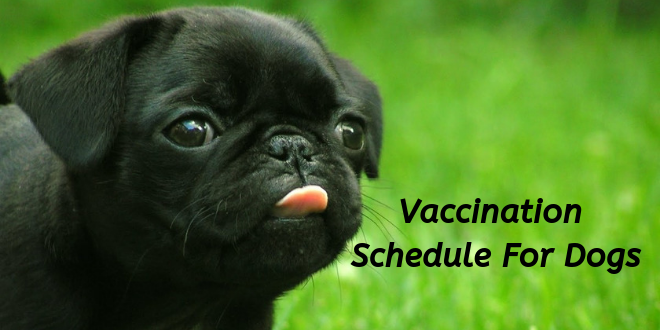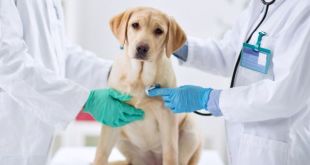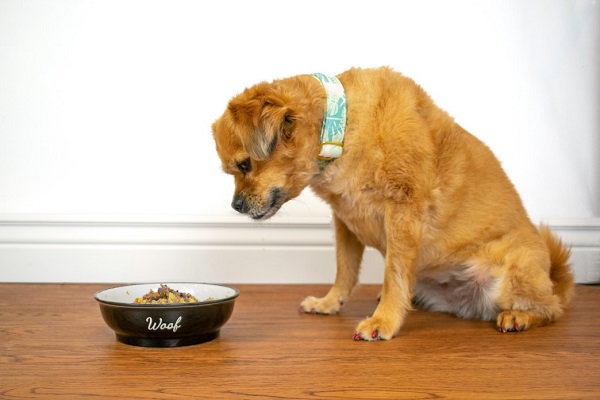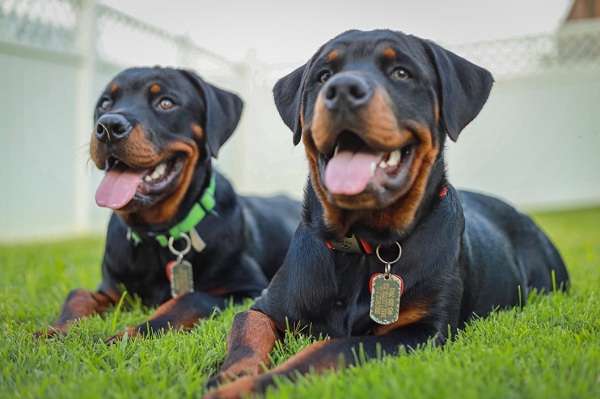Young puppies have a high risk of infection. The puppies have strong immunity against diseases to which their mother has been exposed. They get this immunity in the form of maternal antibodies, which are passed on in the first milk that is suckled.
This acquired protection gradually fades and disappears within 12 weeks of age. So vaccination is really important to keep dogs disease-free.
Eventually, a dog will generate its own protection when its white blood cells learn how to produce antibodies. This isn’t possible until the white blood cells are exposed to specific infectious agents or the modified infectious agents used in vaccines.
What are vaccines?
A vaccine harnesses the body’s natural ability to defend itself. Vaccination or immunization stimulates an immune response that will protect a dog from the natural form of a disease.
Vaccination in canines is necessary to prevent many diseases. Earlier, the dogs have a high risk of getting affected by canine hepatitis and canine distemper, leading to death. With the help of vaccinations, these diseases can be prevented.
Most vaccines are given by injection but some can be given by aerosol in the nose. The effectiveness of vaccines may vary. Some vaccines offer lifelong immunity while others offer partial protection against a particular disease.
This happens as certain viruses can modify their form and the vaccine would be effective against one form but not against other forms.
How do vaccines work?
Vaccines work by sensitizing the immune system to a particular disease – a disease that can cause bacterium, bacterial toxin, or virus. Most vaccines contain the organism or toxin against which protection is sought.
The organism added to the vaccine has been killed, genetically modified, or weakened so it does not cause illness but still stimulates the body to produce antibodies against it.
This means if the vaccinated dog later encounters the disease, it remains healthy because it already has the antibodies to destroy the disease-producing agent.
Dog Vaccine Schedule: A Guide To Dog & Puppy Vaccination Schedules
| Age of the puppy | Suggested Vaccinations | Optional Vaccinations |
| 6 weeks-8 weeks | · Distemper
· Para-influenza · Measles
|
Bordatella |
| 10weeks-12 weeks | · Distemper
· Parvo-virus · Adenovirus (hepatitis) · Para-influenza
|
· Coronavirus, Leptospirosis, bordatella,
· Lyme disease |
| 12 weeks-24 weeks | Rabies | None |
| 14 weeks -16 weeks | · Distemper
· hepatitis) · Para-influenza · Parvo-virus |
· Coronavirus, Leptospirosis,
· Lyme disease |
| 12months-16 months | · Distemper
· Hepatitis · Para-influenza · Parvo-virus · Rabies |
· Coronavirus, Leptospirosis,
· Lymedisease, · Bordatella |
| Every 1-2 years | · Distemper
· adenovirus (hepatitis) · Para-influenza · Parvo-virus |
· Coronavirus, Leptospirosis,
· Lyme disease, · bordatella |
| Every year once | Rabies | None |
When a dog should not be vaccinated?
Dogs should not be vaccinated under any of the following circumstances:
- Under eight weeks of age
- During pregnancy or lactation
- In cases of injuries and severe stress
- Within 30 days of estrus or during estrus
- During or within 30 days of corticosteroid treatment
Vaccines’ inefficiency
There are some rare circumstances or conditions in which vaccinations may fail to work such as:
- Dog’s faulty immune system
- A high level of maternal antibodies in the pup neutralizes the vaccine
- Existing infection with the disease that has not yet produced clinical signs
- Incorrect vaccine handling, storage, and administration.
Being a responsible dog parent is all about taking care of your furry friend from contracting a disease that can be easily prevented. So…do not hesitate. Go to your local vet clinic and discuss having your pup vaccinated properly and in time.
 DogExpress
DogExpress


















 in Chandigarh, India.
in Chandigarh, India. 

